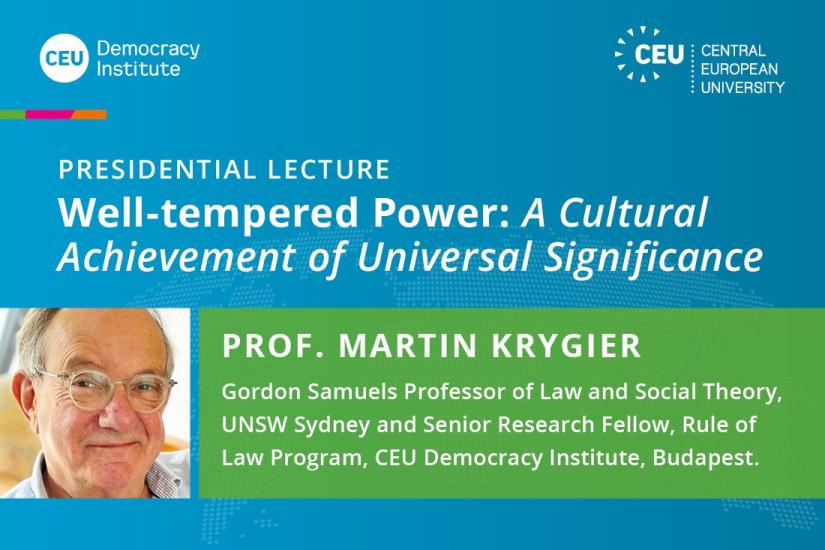
Abstract
According to Laurent Pech, the rule of law was described as a “‘buzzword’ by [Hungary’s] justice minister; a fiction by a Fidesz MP; and a ‘magic word’ by the Fidesz-KDNP Delegation to the European Parliament. Not to be undone, a judge from Hungary’s (captured) constitutional court, has presented the rule of law ‘as a normative yardstick’ which is little more than an empty nineteenth century ideal and a political joker [sic] for all purposes” (L. Pech, ‘The Rule of Law as a Well-Established and Well-Defined Principle of EU Law,’ (2022) 14, 2-3 Hague Journal on the Rule of Law, 128)
By contrast, the English historian, E.P. Thompson, notoriously and controversially called the rule of law ‘a cultural achievement of universal significance.’ Thompson got it right. Each word in that phrase, I seek to demonstrate, deserves emphasis and respect.
However, it makes a huge difference how one thinks about the rule of law, and what one takes it to be about. What is universal is the notion and realisation of a state of affairs in which power is reliably tempered so as not to be available for arbitrary abuse. It is that which is a cultural achievement of universal significance. It is a mistake to identify it with any allegedly canonical arrangement of forms, institutions, or rules that are enlisted or assumed to embody it.
Many people make that mistake. Some do so, because they naively think that installation of familiar institutions they associate with ‘the rule of law’ is the same as generating the rule of law itself. The disappointing history of rule of law promotion around the world shows that is not the case. On the other hand, modern illiberal, often populist, regimes are happy to endorse such a mistake and pretend that they are committed to the rule of law by making a show of conformity to legal forms, while systematically subverting and abusing the rule of law itself. Both the naïve and the malicious interpretations should be rejected.
Martin Krygier is Gordon Samuels Professor of Law and Social Theory, UNSW Sydney and Senior Research Fellow, Rule of Law Program, CEU Democracy Institute, Budapest. He writes extensively on the rule of law and its challenge(r)s, most recent among them anti-constitutional populism. His books include Philip Selznick. Ideals in the World; Civil Passions; Between Fear and Hope and, as editor and co-editor, Anti-Constitutional Populism; Spreading Democracy and the Rule of Law?; Rethinking the Rule of Law after Communism; Legality and Community. On the intellectual legacy of Philip Selznick; The Rule of Law after Communism; Marxism and Communism. Posthumous Thoughts on Law, Politics and Society; Bureaucracy: The Career of a Concept. He writes extensively for academic journals and journals of public debate, on the rule of law, law and social theory, and law and politics in central and eastern Europe. His present research is focused on anti-constitutionalist populism and the rule of law.
In 2002 he was awarded the Cavalier’s Cross, Order of Merit of the Republic of Poland, in 2016 the Dennis Leslie Mahoney Prize in Legal Theory, and in 2020 Membership of the Order of Australia. He was elected a Fellow of the Academy of Social Sciences in Australia in 2002 and has enjoyed invited fellowships and visiting professorships at numerous universities and institutes in Australia, Austria, Hungary, Israel, New Zealand, Poland, Spain, the United States, and the United Kingdom.